This post was updated Oct. 10 at 10:00 p.m.
Spanning Oct. 10 to Oct. 20, members of the union representing academic student employees and student researchers at the UC, United Auto Workers 2865, and the union representing postdocs and academic researchers, UAW 5810, will vote on whether to amalgamate and form one big union.
The result of amalgamation would be the formation of the largest union at the UC and one of the largest unions in the state of California. Amalgamation might be an unfamiliar concept, but it is actually the natural next step for our unions. As members of both UAW 5810 and UAW 2865, we strongly support it. If you’re eligible, we urge you to vote yes.
Across job titles and experience levels, academic workers have repeatedly tried to form one big union with wall-to-wall coverage across the UC. It was never our desire to separate undergraduate tutors from graduate student researchers, or teaching assistants from postdocs and academic researchers. How our unions were established separately is a historical error that academic workers have spent the last decade trying to correct.
In 1999, when tutors and TAs formed the union that became UAW 2865, graduate student researchers were an integral part of our campaign and also intended to become unionized workers. However, the UC’s legal campaign to exclude researchers as workers resulted in a 1998 ruling that prevented them from being included in our union.
In 2008, when postdocs and academic researchers won a union, our intention was to affiliate with UAW 2865, but this move was blocked by a conservative UAW regional leadership – one which has since reformed in part due to the joint efforts of our locals. Beginning in 2018, academic workers across both locals began a campaign of joint organizing to 1) win a union for graduate student researchers and 2) mount a coordinated strike threat.
These efforts culminated in our historic cross-union strike in the winter of 2022. Many people have noted the strike’s unprecedented size and its status as the first research strike in modern higher-ed history. However, commentators rarely point out an equally important success: keeping a yearslong multi-unit campaign coordinated from start to finish. To us, that’s a clear sign of effective unity – all that remains is to formalize that unity.
While the university and regional leadership sought to limit our strength in unity, the might of our collective organizing power proved insurmountable. Our effort to amalgamate UAW 2865 and UAW 5810 into one big union approaching wall-to-wall power is not a spontaneous effort but the logical outcome of over a decade’s worth of organizing.
Amalgamation is not an endpoint, though – it’s a step forward in our struggle to combat the university’s recent and egregious actions, such as charging 67 workers with student conduct charges for engaging in peaceful protest. Workers from both 2865 and 5810 have also been arrested and held overnight in jail. The university intends to inspire fear and disunity. By amalgamating, we can respond with an even stronger structural unity.
If UAW 2865 and 5810 were to amalgamate, we’d become the largest local at UC. This puts us in a position of increased strength against the largest California employer and landlord in the world’s potential fourth-largest economy. However, it would also make us an even more powerful voice in the UAW as a whole, where our local would be an even more effective voice for progressive change, democratization and militant organizing than we have been over the past quarter century.
For these reasons, we encourage all eligible academic workers to vote yes on the amalgamation referendum when ballots arrive Oct. 10. We’ve spent years building unity among academic workers—let’s make that unity official and move forward as one.
Desmond Fonseca is a graduate student in the Department of History.
Elisa Pabon is a postdoctoral research fellow in the Department of Psychiatry and Biobehavioral Sciences.
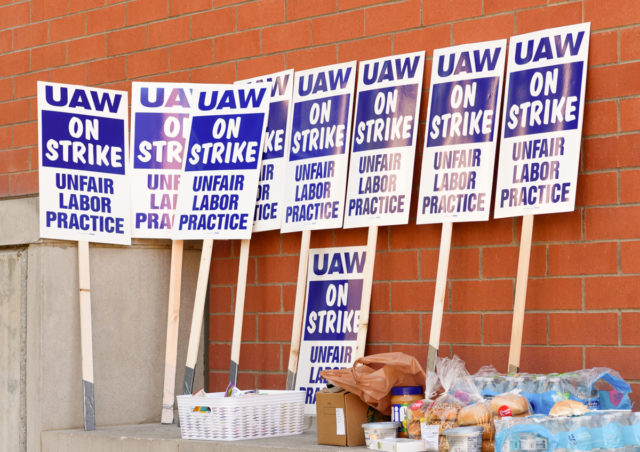

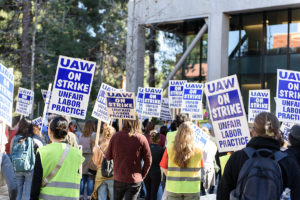
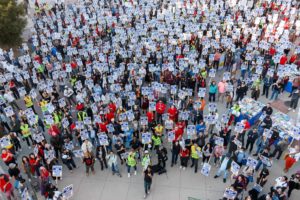
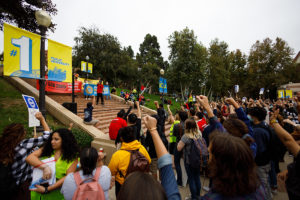
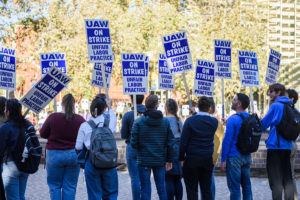
Comments are closed.